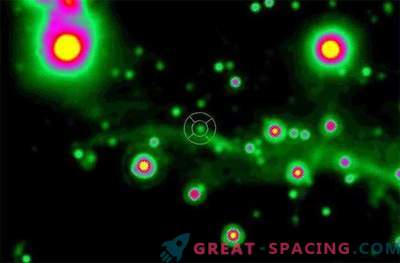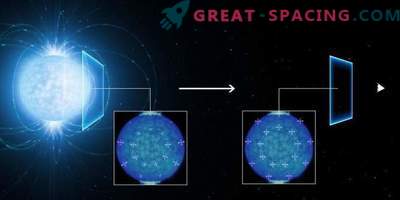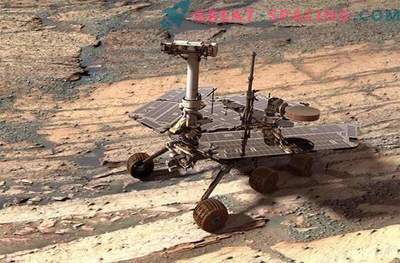
Brioni Horgan - expert on Mars and co-investigator on the Mastcam-Z camera system for NASA Mars 2020 mission
Over the past decades, thousands of worlds have been discovered, although astronomers claim that there may be billions of them. In such a large and diverse set of solar systems it seems impossible for people to be the only intelligent life. The contradiction between the high probability of life in other parts of the Universe and the lack of evidence is called the Fermi Paradox. A riddle in the 1960s. brought the physicist Enrico Fermi and she still continues to attract attention.
For life to develop, the planet must contain liquid water. Recently, scientists have revealed signs of a lake on Mars, which is buried under a dense layer of ice near the planet’s south pole. If there is liquid water there, then it can serve as a temporary shelter for organisms that lurk there until more comfortable conditions form on the surface. But the possible existing Martian life is likely to be represented by simple unicellular organisms, and not by the frightening smart forms presented by 20th century science fiction.
There are alleged solutions to the paradox. Suppose that extraterrestrial life exists, but there is no mind there. Or developed beings simply lead a quiet existence. There remains a low probability that we are the only life in space. Any scenario is possible, but Brioni Horgan (professor of terrestrial, atmospheric and planetary sciences) advises not to give up and look further. The bottom line is that the active search for extraterrestrial life lasts only 60-70 years. The age of the Universe reaches 13 billion years, so the mark of seven dozen is a short time. Perhaps intelligent life is not as common as we think, or we are looking in the wrong direction.
The search for someone else’s life has so far been based primarily on radio signals, which could also limit our chances of communication. Many radio frequencies can penetrate the earth’s atmosphere and are easily mistaken for artificial ones due to the repetitive nature and narrow bandwidth. But this does not mean that if some civilization is actively sending signals, we will see them.
Humanity is improving the systems for fixing cosmic signals and the achievements, like the Kepler Observatory, have been taught a lot by researchers about the Solar System. NASA has a plan to colonize Mars, send a probe to the Sun, a mission to the satellite of Jupiter, etc. All these are attempts to explore space and figure out its own origin.
How does life evolve? How unique are we? What are the consequences of human activity for the earth? The search for someone else's life brings us back to fundamental questions. And if we are truly the only life in space, then this can be a driving factor for the colonization of other worlds and the spread of the species in the universe.











































